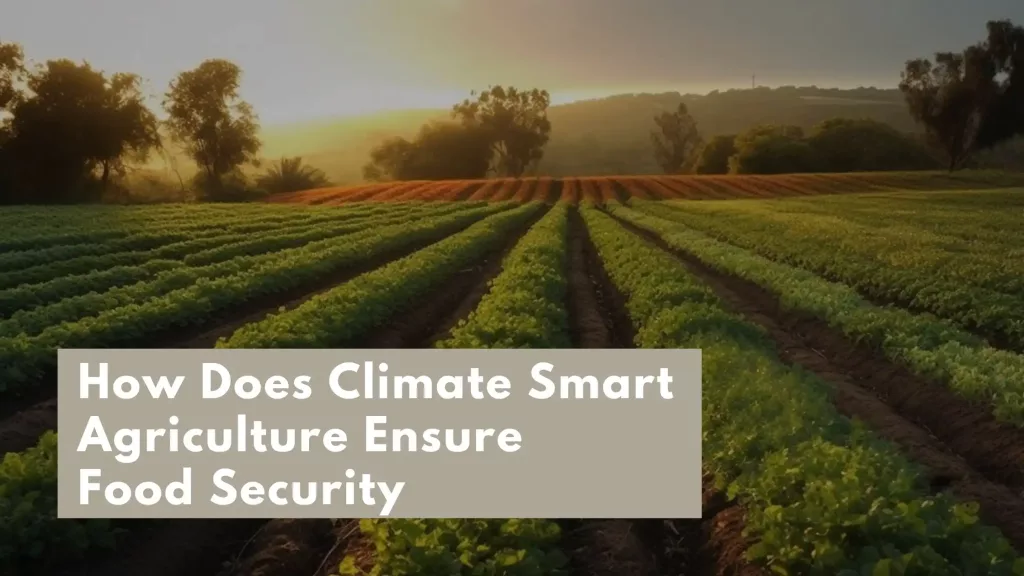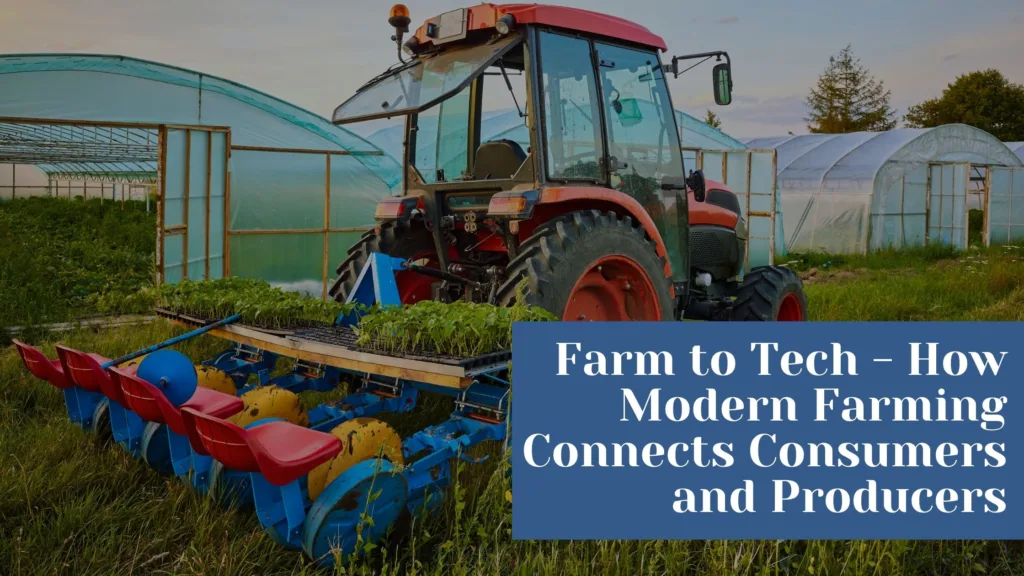Introduction
In the farming sector, when one has to choose between the quality and quantity of crops, there is always a win-win situation for quality. As consumers focus more on their health, they prefer organic and quality food. When there is a need to meet the commercial demands of a growing population, farming focuses on producing staple crops using traditional farming methods. However, with time, the preferences of consumers have shifted towards quality. To achieve this goal, the approach of specialized farming has emerged, keeping the focus on the unique, high-quality, and sustainable production of the goods.
Specialized farming, also known as niche farming, is in which the 50% or above income generation of a farmer is derived from a single crop or enterprise. Farmers choose this specific crop or particular livestock according to the demand in niche markets. In this article, we will provide you with a complete guide to specialized farming, exploring its aspects such as its benefits, challenges, and future prospects.
Understanding specialized farming
This farming involves the idea of producing goods to cater to specific market niches. Farmers focus on the approach of quality, innovation, and sustainability instead of pursuing mass production. Specialized farming allows farmers to produce a crop that stands out in the market for its exclusive quality. These kinds of niche products incorporate higher value and uniqueness, for which they are often sold at higher prices in niche markets.
Diverse Niches in Specialized Farming
Let’s explore the range of niches in specialized farming that have their own unique features and demands:
- Organic Farming: This farming focuses on the use of natural or organic resources without the use of synthetic chemicals and fertilizers. This practice promotes soil and the environment’s health, biodiversity, and sustainable agriculture.
- Heirloom and exotic crops: These crops have inherited significance in culture. Heirloom crops are varieties of crops whose production passes down through generations. This generally includes cultivating various exotic fruits, herbs, and medicinal plants.
- Hydroponics and vertical Farming: These are efficient and innovative techniques for growing crops using controlled environments and minimal resources. This type of farming is ideal for urban spaces with a lack of arable lands.
- Urban Farming: Growing crops in urban spaces such as rooftops, vacant lots, and vertical spaces brings farming close to the heart of cities. This not only allows urban people to utilize the free spaces but also enables them to grow fresh produce on their own.
- Specialized Livestock: It is an expensive way of earning income in which farmers choose a specific livestock breed, like any heritage or rare breed. This leads to a high amount of income and high-quality dairy or fiber products as well.
- Specialty Dairy and Cheese making: Specialty dairy is the production of dairy products and artisanal cheeses from exclusive breeds. Farmers utilize traditional methods for keen and exclusive results.
Benefits of Specialized Farming
- Quality over quantity: specialized farming focuses on quality over quantity. Thus, produce quality goods to meet the demand of the group of prudent consumers who demand unique and fruitful products.
- Sustainability: This farming promotes the sustainable practices of farming to generate quality production, which mostly includes small-scale operations. These sustainable practices minimize the use of chemicals, water, and energy while reducing waste.
- Higher Profit Margins: Specialized farmers enjoy a higher level of income through niche products as they are generally expensive.
- Market Demand: Targeting production for niche markets reduces the chance of oversupply and waste. The demand for niche products is generally higher for a specific type of consumer.
- Innovation and Technology: Another benefit of specialized farming is that it uses technologies like precision agriculture, controlled farming, and hydroponics. Embracing technologies allows for optimized production and enhanced farming.
- Community Engagement: Farmers’ markets, CSAs (Community Supported Agriculture), and direct-to-consumer sales create stronger connections between farmers and consumers.
Challenges of Specialized Farming
- Limited Crop Varieties: This farming critically relies on specific crops or practices that can increase the chance of disease outbreaks and market fluctuations.
- Higher Production Costs: Niche farming is way more expensive due to specialized crop selection. The use of special equipment, labor, and techniques makes it costlier in comparison to other farming.
- Marketing and Distribution: Effective marketing and distribution strategies are required for dealing in niche markets that are tailored according to a specific target audience.
- Market Fluctuations: Niche markets are more vulnerable to rapid changes in demand, consumer preferences, and economic conditions.
- Expertise Required: To choose a niche in specialized farming, there is a need for a deep understanding of the targeted niche. Along with the specialty, there is a need for knowledge about farming techniques, pest management, and product processing.
Steps to Success in Specialized Farming
- Thorough Research: Understand your chosen niche market, its trends, consumer preferences, and potential competitors.
- Education and Training: Acquire the necessary knowledge and skills through workshops, courses, and networking with experts.
- Business Planning: Develop a comprehensive business plan that outlines production, marketing, distribution, and financial strategies.
- Sustainable Practices: Integrate sustainable methods to reduce your environmental footprint and enhance your product’s appeal.
- Quality Control: Maintain high standards throughout production, processing, and packaging to ensure consistent quality.
- Market Testing: Conduct market tests and gather feedback to refine your product and marketing strategies.
- Collaboration: Partner with local restaurants, retailers, and other producers to expand your reach and create a sense of community.
Future Trends in Specialized Farming
- Technology Integration: The ongoing advancements in specialized farming, such as automation and biotechnology, will build its future.
- Urban Agriculture Expansion: Most urban areas opt for specialized crop production. Thus, the growth of farming in urban areas will open up opportunities for specialized farming.
- Circular Economy Practices: Composting and waste reduction are some principles of circular economy practices. These will become integral parts of specialized farming in the future.
- Consumer Education: Consumers will need education about the preferred niche products, their origin, production methods, and benefits to fulfill their thriving demand for transparency.
- Climate Resilience: Niche farming will become more climate resilient because of the need for time. It will adopt drought-resistant crops, alternative water resources, and energy-efficient methods for adapting to climate change.
Conclusion
Specialized farming is a revolutionary approach that not only explores the newest opportunities for farmers and consumers but also promotes sustainability, innovation, and community engagement. It’s a transformative approach that enhances the income and opportunities of the farmers to meet consumer demands through unique, high-quality produce. This ethical and sustainable way of producing goods contributes to the evolution of modern agriculture. Niche farming develops a unique way of thinking about food production and consumption.
Additionally, some changes need to be embraced to conquer the challenges associated with specialized farming. By opting for creative solutions and future trends, the landscape of specialized farming will flourish and continue to thrive to an unmatched extent.



Fantastic breakdown! Your blog on specialized farming covers it all – from the nitty-gritty details to the big picture. It’s like a one-stop-shop for anyone curious about this agri-adventure. Now, I feel like a specialized farming pro! Looking forward to more insightful dives into the world of agriculture. Keep the wisdom flowing!
Thanks a bunch for the awesome feedback! Thrilled to hear you enjoyed the specialized farming journey. It’s all about demystifying the agri-world, and I’m stoked you feel like a pro now! Your enthusiasm keeps the agri-conversations rolling. Stay tuned for more agri-adventures and insights. Cheers to cultivating knowledge together!
Finally, a comprehensive guide on specialized farming! This post covers all the nitty-gritty details, from techniques to benefits. Super informative – I feel like a specialized farming expert now!
This post on specialized farming was a great read! It’s fascinating to learn about the different approaches farmers take to optimize their crops.
I’m glad you enjoyed the post on specialized farming! It’s truly fascinating to delve into the various approaches farmers use to optimize their crops and enhance agricultural productivity. Specialized farming techniques showcase the ingenuity and adaptability of farmers, as they tailor their methods to suit different crops and environmental conditions. If you have any further questions or if there are other aspects of farming you’d like to explore, feel free to let me know. Thank you for taking the time to engage with the content, and I’m thrilled that you found it interesting!
Wow, what an interesting read! I never realized there were so many facets to specialized farming. From hydroponics to vertical farming, it’s amazing how technology is revolutionizing the way we grow our food. Thanks for breaking it down in such an easy-to-understand way! Can’t wait to learn more and maybe even try my hand at it someday.
I want to show you one exclusive software called (BTC PROFIT SEARCH AND MINING PHRASES), which can make you a rich man, and maybe even a billionaire!
This program searches for Bitcoin wallets with a balance, and tries to find a secret phrase for them to get full access to the lost wallet!
Run the program and wait, and in order to increase your chances, install the program on all computers available to you, at work, with your friends, with your relatives, you can also ask your classmates to use the program, so your chances will increase tenfold!
Remember the more computers you use, the higher your chances of getting the treasure!
Thank me by donating if you have the opportunity.
Free Download:
https://t.me/btc_profit_search